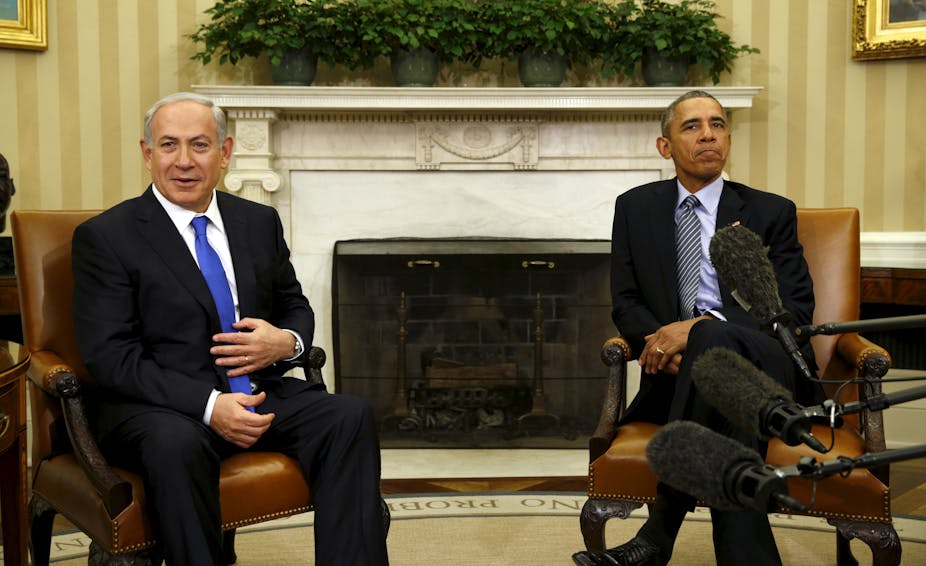Back in September 2015, two months after the historic Iranian nuclear deal was finally struck, Jeffrey Goldberg wrote in the Atlantic that the international agreement to restrain Iran’s nuclear program “should count as the crowning diplomatic achievement of Israeli Prime Minister Benjamin Netanyahu.” Counter-intuitive, yes – but also prescient.
Recognising that “Netanyahu, of course, doesn’t see this agreement as a victory for Israel; he sees it as a victory for evil,” Goldberg sought to “highlight a public path Netanyahu could have chosen.” As Goldberg suggested, instead of slamming the agreement in addresses to the US Congress and the UN, Netanyahu could hold up the deal as “the first time Iran has agreed to radically curtail its previously unregulated nuclear activities” – and claim that would not have happened without sustained pressure from Israel.
Perhaps Bibi, as he’s known, was reading.
As the agreement reached its “implementation day” with the removal of international sanctions following Iran’s compliance with the deal, Netanyahu was quick to credit Israeli efforts for preventing Tehran from acquiring a nuclear weapon. According to the Times of Israel, Netanyahu opened his weekly cabinet meeting by stating, “If it weren’t for our efforts leading the way in enforcing the sanctions on Iran’s nuclear program, Iran would have had a nuclear weapon long ago.”
Of course, that doesn’t mean Netanyahu is happy with the deal. Despite the support of many in Israel’s scientific and security communities, including a former Mossad chief, Netanyahu still sees the agreement as capitulating to a regime that, in his view, seeks to develop a nuclear weapon in the long term.
And according to Reuters, “Israel argues that the prospect of a nuclear-armed Iran has been eclipsed, for the time being, by the threat of conflict with Lebanon’s Hezbollah and other guerrillas who now stand to get increased funding from Tehran,” a concern also shared by Saudi Arabia and the Gulf states.

Israel has responded to these concerns in two ways.
More, more, more
Netanyahu has positioned his government as Iran’s watchdog, stating that “Israel would strengthen its defenses, increase its intelligence resources and ‘warn of any violation’ of the agreement, while urging the United States and the other members of the UN Security Council to reimpose harsh sanctions on Iran if it violated the deal.”
Pointing to Israel’s role in fending off sectarian threats in the region, Netanyahu has requested that US military aid be increased to as much as $5 billion per year after the current 10-year package, averaging about $3 billion annually, expires in 2017. Such an increase would be unlikely under President Obama’s remaining tenure, but the request could indeed be considered under a new American administration.
In the meantime, Israel will be continuing to develop its anti-missile defences and to use its intelligence to keep a close watch on Iran.
Through his ongoing policies and his statements as the deal is implemented, Netanyahu is seeking to spin the deal as best as he can for Israel. But, there are no parallel policy proscriptions to address the concept, rather than the content, of the agreement, which may be what bothers Netanyahu most about the deal. As Goldberg wrote in the Atlantic article, “Netanyahu’s complaint is not with the Iran deal. It is with the notion that one can deal with Iran.”
The fact that the international community, and the United States in particular, was willing to engage with Iran has left Netanyahu “licking his wounds,” but with Implementation Day, even Netanyahu has made a subtle pivot towards pragmatism. Bibi may still hate the agreement, but his response this past weekend reflects a slight shift from the past as he seeks to leverage the deal for Israel’s political and strategic interests.

